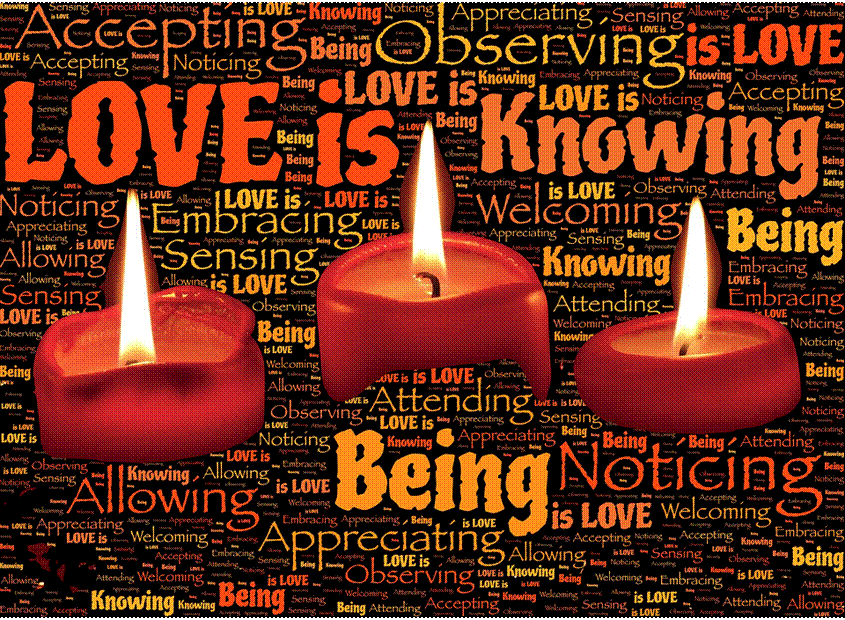
As a life coach, I teach mindfulness. To me, mindfulness is observation of sensations, thoughts and emotions without judgment. Our conscious mind is in charge of 10% of our actions and our subconscious mind is in charge of 90%. Therefore, mindfulness is a simple and highly effective way to increase our awareness, overcome negative feelings and gain more control over our actions.
These three words, “mindfulness”, “awareness” and “control”, are very important.
Naming a negative feeling is a useful method to ease fear, but verbalizing the reasons for the fear is not
Ronit Baras
For years, I have been promoting emotional intelligence. Emotional intelligence is a person’s ability to do these four things:
- Recognize own feelings
- Manage own feelings
- Recognize others’ feelings
- Help others manage their feelings
The better you are at doing these things, in this order, the more emotional intelligence your have (the higher your EQ).
One basic tools used to reach high EQ is “Name the feeling”. Researchers have found that when people give a name to a hard feeling they have, their brain decreases the intensity of the feeling. Matthew D. Lieberman, professor of psychology and director of the UCLA Social Cognitive Neuroscience lab, has shown that simply labeling emotions reduced the activity of the amygdala, the brain’s center of emotional responses, which reduced fear. Naming emotions also increased activity in the pre-frontal cortex, the mind’s regulator.
Many people know this concept, but some of them take it too far, because not all verbalizing is healthy for us. Many people believe that if we name the “problem”, we are half-way into solving it. After working with many clients, I can tell you that almost 90% of them know what their problems are, but they are far from solving them.

Expression is a thinking tool and works well when we name our feelings to ourselves, but not when we explain, to ourselves or others, why we feel the way we do. I believe that naming a negative feeling, like fear, is a useful way to ease that feeling, but verbalizing the reasons for that fear only makes it harder to overcome.
Recently, I had a chance to visit my family and spend some time with my mother, who is 77 years old. My mom is one of those people who took the concept of naming feelings to the next level.
Every time she was anxious, worried or sad and every time something did not happen the way she wanted, she would share her feeling aloud with everyone around her, along with a detailed explanation of why she felt that way. She would start sharing horrible past stories that seemed related. She would start sharing prophecies of a horrible future and sometimes, she was even insensitive (I still love her dearly!).
My mother never meant to hurt anyone. She was just trying to ease her own negative feeling. She believed that if she expressed her fear and justified it, it would go away somehow, but it never did and it never will!
Think of yourself in the jungle, seeing a lion or a snake. Your “primitive brain” takes over (yes, this is what happens to all of us when we are scared, angry or upset) and in the primitive brain there are three functions: Fight, Flight and Freeze. There is no creativity, no caring and no logic. Nothing but primitive survival responses.
Do you think that if you express your fear or the reasons to your fear to the lion, the fear will go away?
No!
This is the same in a conflict. Your brain thinks that something someone has said, done or not done as a threat, just like a lion or a snake. Screaming “lion” or “snake” does not make it any less scary.

The problem of people who share their negative feelings and their reasons with others is their need for validation. We cannot translate the way we experience feelings into words. We can express many different levels of happiness by saying “I am happy” in different tones and different body language, while using the same words. Is it the same feeling every time?
No!
People justify their feelings because they were not allowed to express negative feelings, or were punished for expressing negative feelings, when they were young. Usually, when that feeling comes up, they feel bad about feeling bad and immediately search for a good reason for their feeling. They search and they always find! When they find a reason, they reinforce the negative feeling and make it even harder to shake.
Can you see the cycle?
This never-ending cycle needs to be sorted internally. Too often, this attempt to feel better makes other people run away from those who verbalize and excuse their fears. This, in itself, starts yet another cycle of negative feelings.
“To express or not to express?” That is the question
Negative feelings do not need to be justified. They need to be felt with mindfulness. They need to be observed without judgment. Then, they fade
Ronit Baras
It is very useful to be mindful and observe without judgment. Naming a feeling is still non-judgmental. If I am in conflict with someone and I say to myself, “I feel angry”, this is a mindful act.
If I am in conflict and I say to the other person, “I am angry with you”, this is communication.
But if I say, “You have made me angry”, I have crossed the line from mindfulness to judgment (by assuming bad intentions).
If I start explaining why I am angry and justifying my judgment, then I risk both of us communicating from the primitive brain. I feel attacked, so I attack the other person back, and then, both of us can only see lions and snakes.
People who spend too long in the primitive brain do not have good mental health and don’t very high emotional intelligence because they can’t manage their feelings. In fact, the more they justify their fear, the more they spend in this zone. This affects negatively on all aspects of life. Seeing too many lions and snakes affects health, productivity, work, relationships, income, level of success and happiness. My mom struggled all her life with all those areas.
When sailing the ocean of life, justification is an anchor
Ronit Baras
We use justification to explain why things in our life do not happen the way we want. When we express our reasons, life does not suddenly start being the way we want it to be. I know it is hard to accept this, but justification does not make the pain go away.
No wonder those who verbalize and justify their negative feelings feel stuck and out of control! They keep weighing themselves down.

Mindful observation
In meditation, we observe our sensations, thoughts and emotions as they come and we do it without judgment. Non-judgment does not mean pretending they are not there. It means acknowledging them and letting them disappear slowly, on their own, without force.
For example, if I feel hungry in the middle of meditation, I do not say to myself, “This is an illusion” or “I am not supposed to feel angry” or “Being hungry is not a good feeling”. I simply think, “The feeling I have now is called ‘hunger'”, and I stay in the feeling as long as I can.
You will be surprised to discover that your feeling goes away by itself (yes, even feelings like hunger). It may come again and you may have to do it again, until you control the hunger, instead of the hunger controlling you.
When we verbalize or justify our negative feelings, we add fear to the hunger and keep ourselves in a state of “starvation”. Our immediate reaction is to do something NOW to get rid of the bad feeling at all costs. This activates our primitive brain and we go and “eat” anything and anyone standing in our way.
Do not justify your fear to the lion
We can manage our feelings by observing and naming them. It is still a good idea to share our feelings with supportive people. Remember, supportive people. Sharing with those we perceive as lions is like screaming at a lion in the jungle in hope it will be sensitive to our hard feelings about being eaten.
Supportive people can be good friends, trusted family members, a good teacher or a professional, like a doctor or a life coach (professionals have the advantage of understanding that letting you justify your fear will only make you relive it again and again and make it stronger).

Steps to Mindfulness
- First, recognize that the feeling you have is fear. Say it to yourself internally, “What I’m feeling right now is fear”. If you can, imagine yourself looking at yourself experiencing the fear. This distance is healthy for us as it teaches us to separate ourselves from our feelings.
- Next, try to find where in the body your feeling is located it and try to move it to different places in the body. I say “try”, because some people can do it themselves and others need guidance.
- Do not fight the feeling. Do not try to make it go away at all costs. The desire to push the negative feeling away only increases its intensity. The more you resist, the scarier it is.
- Feel it without judgment. Do not classify it as good or bad.
- Do not let your brain go into “justification mode”. You do not need to justify feeling afraid. Feelings are not the enemy. They are messengers. Feel them and they will move on when the message is delivered.
- I promise that you will not even need 10 minutes for the feeling to fade. People freak out from 1 minute and 10 minutes seem like a long time, but gradually, this will get shorter. Within three days of practice, you will be able to relax much more quickly.
Whatever happens, do not give your negative feelings a megaphone.
Be happy,
Ronit











